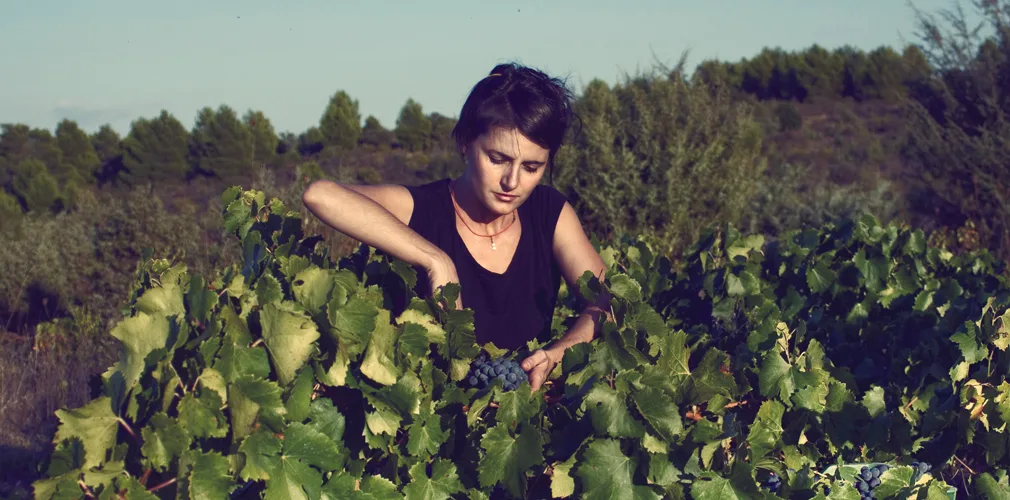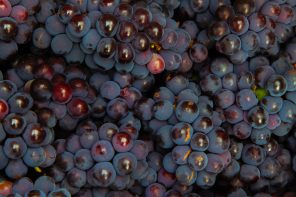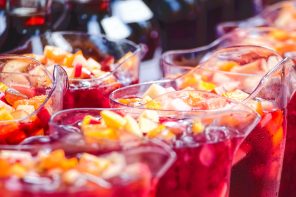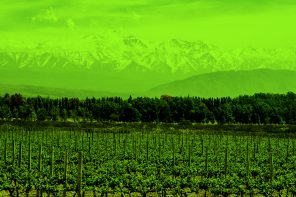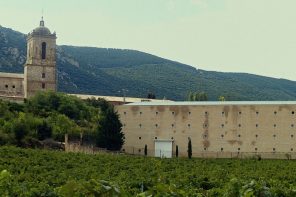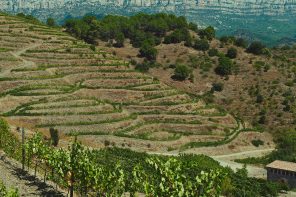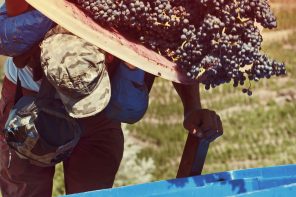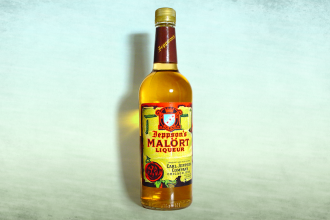When María Barrena was 12 years old, her father planted a vineyard on a tiny plot. It was strictly a hobby, an ambitious attempt to get wine out of desert terrain with extreme weather and poor soil- a place where all the grapevines had already died. But this slice of the Bardenas Reales Natural Park in Navarra, Spain was special. It had been passed down by María’s grandfather, and as such, her father was determined to make it work. Of course, he couldn’t do it alone.
María would accompany her father to the vineyard every weekend. She’d freeze during the winters, burn during the summers and do her best to fight off the misery of waking at the crack of dawn only to swat at mosquitoes and get down in the dirt. María herself admits that her first feelings towards the vineyard were “hateful.” There was no love lost between her and the harvest.
Then came what María calls the “magical transformation of grapes into wine.” Once María smelled the aromas of fermentation “all of the work of caring for the grapes was filled with meaning.” That first wine ended up a disaster, but it was also a revelation.
These days, María is a winemaker at Azul y Garanza. Grapes from her grandfather’s strip of land are used to produce their top wine, Desierto. Not only is María a winemaker, she’s one with a conscience, a concern for the environment and a deep affection for the land she works.
Many of her grapes come from small, handpicked plots free of pesticides and chemicals. Likewise, many of her wines are completely organic, fermented with wild yeast and created with the integrity and spirit of her vineyards in mind. In an era when factory-farm style production has made its way into the wine industry, María’s commitment to harvesting her way is rare and refreshing. We spoke with her to learn how handpicking organic grapes and making “wild” wines is possible in an age of mass production- and why it’s so important:
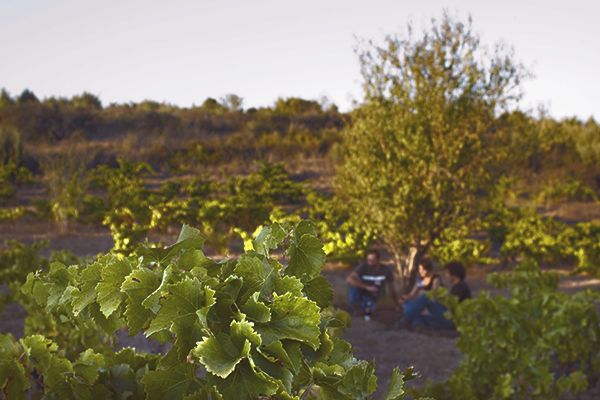
You once said that you work with “landscapes” and not vineyards. What’s the difference?
Rudolf Steiner, biodynamic father, said there is a universal law- the quality of a wine is directly proportional to the beauty of the place where the grapes are grown. Beauty lies in biodiversity, breaking the monoculture of the vine and filling the vineyards with many different living things: planting trees, plants, flowers which attract insects and birds. They interact and coexist in harmony. We create natural spaces full of vitality, balance and beauty, which release energy that the grape captures and turns into a wine full of complexity and authenticity.
Making wine your way can be more expensive, is more labor intensive and puts your grape yield at risk. Why is it so important that grapes are grown organically in small plots?
We love risk. You know- no risk no fun! Seriously, what we find risky is to work the vineyard in a conventional way with chemicals. That causes the land to fatigue. Using chemicals that wear out the land means we lose the fertility and authenticity of our soils.
How do you, as a grower, protect your harvest without using chemicals?
The balance of the vineyard is fundamental. The greater the diversity of animals, plants and microorganisms in a vineyard that regulate each other, the more it becomes a stable ecosystem and is protected against pests. The vine is a living being that has the ability to create their own defensive barriers and become stronger against possible attacks. In addition to this, our terroir is climatologically dry and windy, which guards against the proliferation of fungi responsible for diseases like mildew and botrytis.
More and more winemakers are making natural wines with wild yeasts. Why are drinkers and winemakers are returning to this practice?
Natural wines are an attitude, a way to understand and communicate with nature. If we start from the premise that wine is an expression of the earth, we must keep it as pure as possible. Natural wines are wines with landscape and soul, against the globalized taste of big industry. The yeasts existing in our vineyards are unique, so the wines keep the personality, the essence of the grapes and the place.
—

